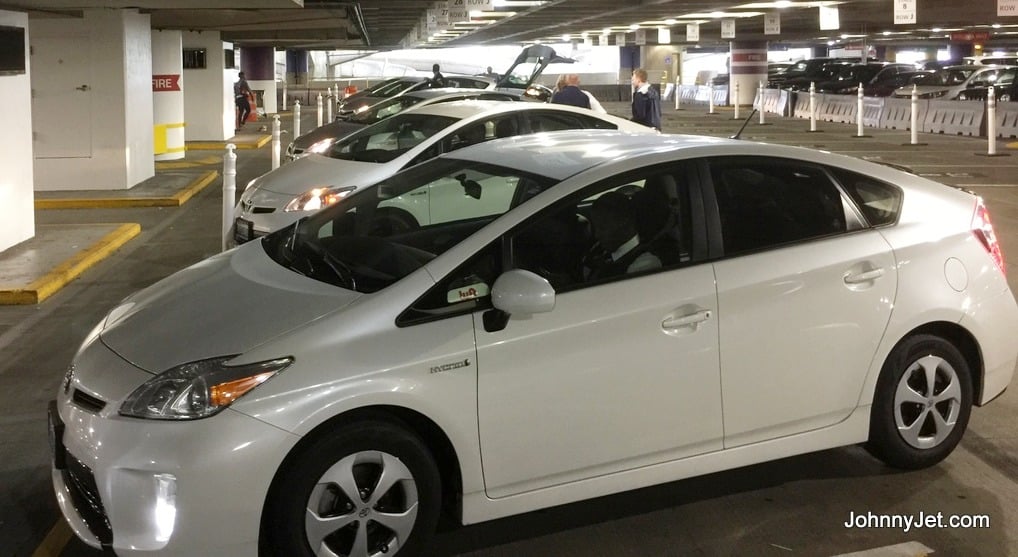 Before the pandemic began, I didn’t even know what a catalytic converter was. Then I started seeing posts on NextDoor from nearby neighbors warning each other to be on the lookout because thieves were now targeting them.
Before the pandemic began, I didn’t even know what a catalytic converter was. Then I started seeing posts on NextDoor from nearby neighbors warning each other to be on the lookout because thieves were now targeting them.
According to Merriam-Webster, a catalytic converter is “an automobile exhaust-system component containing a catalyst that causes conversion of harmful gases (such as carbon monoxide and uncombusted hydrocarbons) into mostly harmless products (such as water and carbon dioxide).”
Thieves target these because they take two minutes to steal and they can sell them to metal recyclers for $200 to $400 who then melt them down for precious metals. To replace and fix the problem if it happens to your car can cost between $1,000 and $3,000 and these days, it isn’t a quick fix thanks to supply chain issues.
According to the National Insurance Crime Bureau (NICB), catalytic converter thefts have indeed seen a significant increase across the country. In 2018, there were an average of 108 catalytic converter thefts per month. In 2020 that number jumped to 1,203! In 2021, there were more than 52,000 such thefts and it’s getting worse.
So how can travelers protect themselves from falling victim? There are multiple ways. If you’re renting a car, I suggest avoiding renting any of the 10 top catalytic converter targets. According to CarFax they’re:
- 1985-2021 Ford F-Series pickup trucks (F-150, F-250, etc.)
- 1989-2020 Honda Accord
- 2007-17 Jeep Patriot
- 1990-2022 Ford Econoline vans
- 1999-2021 Chevrolet Silverado pickup trucks
- 2005-21 Chevrolet Equinox
- 1997-2020 Honda CR-V
- 1987-2019 Toyota Camry
- 2011-17 Chrysler 200
- 2001-21 Toyota Prius
If you own one of these cars and are going on a road trip, I would follow the advice from the NICB and CarFax, which is:
- Install a catalytic converter anti-theft device.
- Park in an enclosed and secured area that is well lit, locked, and alarmed.
- Park in a garage. If not possible and vehicles must be parked in a driveway, consider installing motion sensor security lights. While lights may not provide complete security, it may make some thieves think twice, making them leave the area and your vehicle untouched.
- Call local law enforcement and your insurer should you become the victim of a catalytic converter theft.
- Have a muffler shop etch your vehicle’s Vehicle Identification Number (VIN) on the converter and spray it with a highly visible, high-heat paint. Doing so enables law enforcement to track converters, which in turn could lead police to the thieves.
Have you ever had your catalytic converter stolen? if yes, I’m sorry. Please leave a comment about where it happened, what kind of car you had, how much it cost to replace and how long it took to get the work done. Any other tips for readers?




What good does etching a VIN number do when the converter is being melted down? Maybe install a GPS chip?
I have a 2021 Prius is my car safe
I was parked in a well lit garage in my condo complex. I live in Bay area Calif. It cost $4000 to replace the CC and install the shield on My 2007 Prius. I’m very lucky that my insurance will cover all but the shield which was $500.
Yikes! $4,000! They need to put a stop to this craziness
Checking out from a JOPLIN, MISSOURI HOTEL, I FOUND MY 2008 PRIUS CONVERTER STOLEN. I found a local muffler shop that replaced it for $300. Police stated there were at least 20 stolen converter reported stolen that month
Shields should be standard on all new cars. Prosecute buyers as well as thieves.
I had the catalytic converter on my 2008 Prius several weeks after moving into an apartment here in Albuquerque. Unfortunately, I had $1000 comprehensive deductible. After much cajoling, my insurance agreed to pay for the balance. I spent several months with motion detectors “protecting” my car but depriving myself of a solid night’s sleep. Finally, I had a plate installed covering the cc. I now sleep better and park wherever I need to park. I also have $50 deductible comprehensive insurance.
Thank you for a great article especially the tip of having the car VIN number inscribed on the converter.